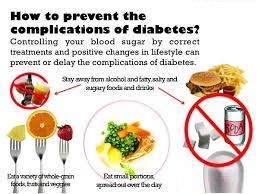
According to some studies, Constipation is the Parent of All Diseases.
That’s because toxins absorbed from a stagnant or constipated colon enter the bloodstream, to circulate throughout the organism. From there, these toxins can settle in virtually any part of the body, and can go on to cause or aggravate a whole host of chronic or degenerative diseases and may lead toCOLON CANCER if not prevented or treated immediately.
Feces, or the stool, being the principal solid waste of the body, is naturally heavy, dense and sticky, and therefore the most prone to stagnation and retention of any of the body’s four major wastes. A healthy, well functioning colon is like the body’s waste treatment plant, but a stagnant, constipated colon is like a toxic cesspool that poisons the whole organism. So if you eat 3 times a day, you should go to toilet to dispose this waste 3 times daily as well.
Constipation can cause or aggravate many common digestive symptoms and complaints, including the following: burping, belching, acid reflux; bad breath and chronic or recurring hiccups; stomach hyperacidity and heartburn; poor appetite and chronic indigestion; abdominal sluggishness, gas, distension and bloating; irritable bowel; intestinal fermentation, putrefaction and candidiasis; flatulence, often foul smelling; and an itchy, burning anus and/or hemorrhoids.
Other systemic diseases and disorders that can be spinoffs of constipation include: moodiness and irritability, morbid thoughts; chronic or recurring headaches, chronic or recurring swollen or sore throat; fatty liver, jaundice and/or bilious disorders; shortness of breath, chronic cough or respiratory weakness; gynecological cysts, growths or tumors; chronic low back pain and/or weakness, sciatica; arthritis and rheumatism; and a generalized state of devitalization and low energy.
What Is Constipation?

Constipation occurs when bowel movements become difficult or less frequent. The normal length of time between bowel movements ranges widely from person to person. Some people have bowel movements three times a day; others, only one or two times a week. Going longer than three days without a bowel movement is too long. After three days, the stool or feces become harder and more difficult to pass.
You are considered constipated if you have two or more of the following for at least 3 months:
- Straining during a bowel movement more than 25% of the time
- Hard stools more than 25% of the time
- Incomplete evacuation more than 25% of the time
- Two or fewer bowel movements in a week
What Causes Constipation?
Constipation is usually caused by a disorder of bowel function rather than a structural problem. Common causes of constipation include:
- Inadequate water intake
- Inadequate fiber in the diet
- A disruption of regular diet or routine; traveling
- Inadequate activity or exercise or immobility
- Eating large amounts of dairy products
- Stress
- Resisting the urge to have a bowel movement, which is sometimes the result of pain from hemorrhoids
- Overuse of laxatives (stool softeners) which, over time, weaken the bowel muscles
- Neurological conditions such as Parkinson’s disease or multiple sclerosis
- Antacid medicines containing calcium or aluminum
- Medicines (especially strong pain medicines, such as narcotics, antidepressants, or iron pills)
- Depression
- Eating disorders
- Pregnancy
In some cases, lack of good nerve and muscle function in the bowel may also be a cause of constipation.
Constipation is a common and often distressing problem, but the first line of attack should not be a laxative and especially not the type of laxative that prompted warnings from the Food and Drug Administration, experts say.
As health conditions go, constipation — usually defined as having fewer than three bowel movements a week or having stools that are hard, dry and difficult to pass — rarely makes the news. But it’s probably not news to most people that almost everyone suffers from it from time to time. Women and people over age 65 are especially affected. About 42 million people at a time, or 15% of the population, have constipation, according to the National Institute of Diabetes and Digestive and Kidney Diseases.
Many of those people will, sooner or later, find themselves in a drugstore aisle, looking for relief and finding what can be a confusing array of products. Among those products: enemas and oral solutions containing sodium phosphate, an ingredient the FDA says can cause dehydration and electrolyte imbalances, especially when taken too often or in higher-than-recommended doses. Most at risk, the FDA says, are young children; people over age 55; those taking several common medications, including diuretics and ibuprofen; and those with kidney disease, heart problems, bowel obstructions or inflamed colons.
NOTE: Some laxatives are dangerous when misused, FDA warns
Before most people reach for any laxative, they should look at their diet and lifestyle, says Eric Widera, a specialist in geriatrics at the University of California-San Francisco. “The ultimate goal is prevention,” he says. Eating more fiber, from fruits, vegetables and grains, is the first step, he says, because that adds bulk to stools and helps move digestion along.
Drinking plenty of water, and exercising are recommended, though the evidence they work is not as good, says Spencer Dorn, a gastroenterologist at the University of North Carolina-Chapel Hill.
Get Extra help for your digestion systems with C24/7 Natura-Ceuticals. It contains 12 Digestive Enzymes in each capsules. 







 In type 1 diabetes, patients sometimes experience what physicians have come to call a “honeymoon period” shortly after the disease is diagnosed. During the “honeymoon period” diabetes may appear to go away for a period of a few months to a year. The patient’s insulin needs are minimal and some patients may actually find they can maintain normal or near normal blood glucose taking little or no insulin.
In type 1 diabetes, patients sometimes experience what physicians have come to call a “honeymoon period” shortly after the disease is diagnosed. During the “honeymoon period” diabetes may appear to go away for a period of a few months to a year. The patient’s insulin needs are minimal and some patients may actually find they can maintain normal or near normal blood glucose taking little or no insulin. But the process that has destroyed 90 percent of the insulin-producing cells will ultimately destroy the remaining insulin-producing cells. And as that destruction continues, the amount of injected insulin the patient needs will increase — and ultimately the patient will be totally dependent on insulin injections.
But the process that has destroyed 90 percent of the insulin-producing cells will ultimately destroy the remaining insulin-producing cells. And as that destruction continues, the amount of injected insulin the patient needs will increase — and ultimately the patient will be totally dependent on insulin injections.
 If you have type 1 diabetes, you must take daily insulin injections or/and a very high Anti-Oxidants
If you have type 1 diabetes, you must take daily insulin injections or/and a very high Anti-Oxidants 

 Every person has cancer cells in the body. These cancer cells do not show up in the standard tests until they have multiplied to a few billion. When doctors tell cancer patients that there are no more cancer cells in their bodies after treatment, it just means the tests are unable to detect the cancer cells because they have not reached the detectable size.
Every person has cancer cells in the body. These cancer cells do not show up in the standard tests until they have multiplied to a few billion. When doctors tell cancer patients that there are no more cancer cells in their bodies after treatment, it just means the tests are unable to detect the cancer cells because they have not reached the detectable size.


 What is Detoxification?
What is Detoxification?